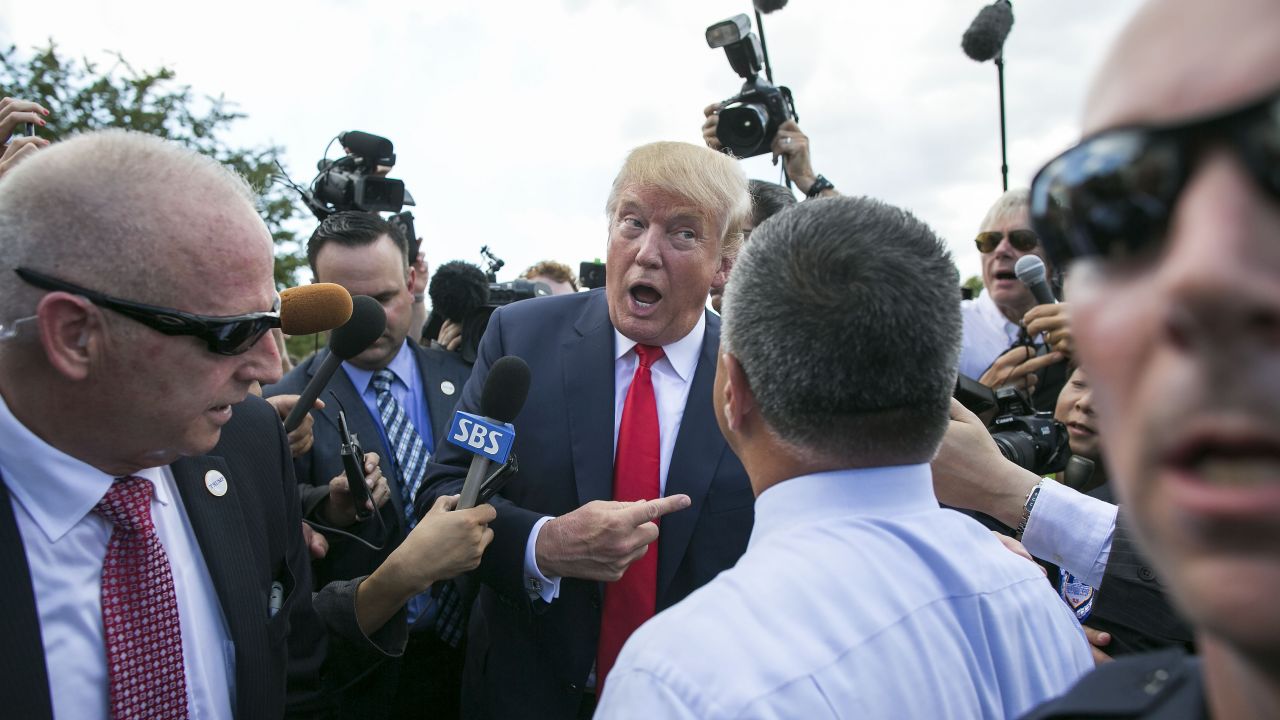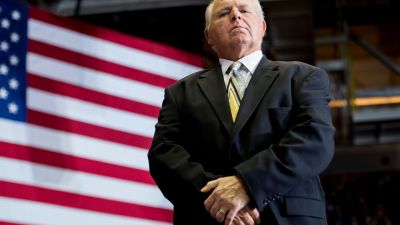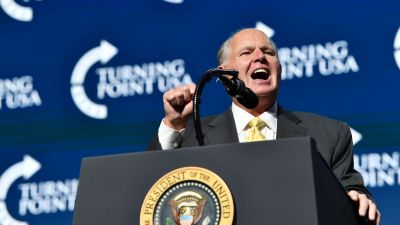
Republican presidential nominee Donald Trump speaks with reporters in Washington. (Photo By Al Drago/CQ Roll Call)
I’ve been writing regularly in this space about the campaign and the media for more than two months now, and it seems like an auspicious time for a progress report.
Good news first. Mainstream journalism has commonly recognized that in Donald Trump they do not have a conventional candidate. But what, pray tell, is that?
- A conventional candidate is one who shades the truth or gives short shrift to embarrassing episodes to make a favorable impression with one constituency or another but rarely, if ever, makes things up out of whole cloth.
- A conventional candidate, when she or he makes a statement that is labeled a gaffe, is permitted to “walk statements back” or “clarify” without being subjected to fevered journalistic attempts to get the candidate to admit that she or he changed positions.
- A conventional candidate is subjected to occasional “gotcha” probes whose purpose is to establish that she or he has changed views over time.
- A conventional candidate is permitted to state policy proposals without being subject to any more serious question than “how would you pay for that?” That is, a conventional candidate is not pressed to give reasons why these proposals make sense; or why they are superior to other proposals, or the status quo; or how they would affect disparate groups; or why some body of experts think other proposals are better.
- A conventional candidate is permitted to state propositions as if they were self-evidently true, without being confronted with counter-evidence — for example, “We have a national debt crisis,” “We face a Social Security crisis,” “We are weak.”
- A conventional candidate is permitted to keep evading a straight answer until the interviewer says, “Let’s move on.”
Without reviewing in any detail the record of the serially mendacious, evidence-impervious, subject-changing, utterance-self-interrupting, self-absorbed, mob-friendly business fraud, confidence man and all-around ignoramus who is Trump, let us stipulate, as the lawyers say, that the man is not a conventional candidate. This is a man who fabricates statistics about immigrant-caused crime, who denies not only human-caused climate change but the existence of a California drought, who changes his stories about whether he knows figures ranging from Vladimir Putin to a Russian felon with whom he had a significant business arrangement, etc., etc., and so forth. It ought to have been clear to reporters from the beginning of his free-media-fueled campaign that Trump had cracked their code and was riding roughshod over any plausible interpretation of truth, but it’s better to have come to such an understanding late than not at all.
There have been a number of breakthroughs: Fox News’ Megyn Kelly’s compilation of Trump’s greatest smears of women as “fat pigs, dogs, slobs and disgusting animals”; CNN’s Jake Tapper pressing Trump more than 20 times when he slammed Judge Gonzalo Curiel for being incapable of giving a fair hearing to a lawsuit against “Trump University” on the ground that the Indiana-born judge is “Mexican”; George Stephanopoulos asking Trump point blank about his tax rate. Perhaps it’s true that, as David Mindich wrote in the Columbia Journalism Review, TV journalists as a whole have experienced a “Murrow moment,” at least refusing to lapse into the mindless role of what the late Jack Newfield called “stenographers with amnesia.” As Mindich pointed out, even Murrow took his time before going full bore after Sen. Joseph McCarthy.
It remains true that if Trump’s deceptions were bricks, you could build a Mexican wall out of them. The bad news with respect to the man Republicans have nominated for the highest office in the land: There are still major areas of his life and so-called views that have gone without major — especially television — coverage or analysis. The good news is that there are three months left to go: plenty of time without giving short shrift to Hillary Clinton’s emails.
Now comes the New York Times’ Jim Rutenberg to ask the question of questions for reporters:
If you’re a working journalist and you believe that Donald J. Trump is a demagogue playing to the nation’s worst racist and nationalistic tendencies, that he cozies up to anti-American dictators and that he would be dangerous with control of the United States nuclear codes, how the heck are you supposed to cover him?
Because if you believe all of those things, you have to throw out the textbook American journalism has been using for the better part of the past half-century, if not longer, and approach it in a way you’ve never approached anything in your career. If you view a Trump presidency as something that’s potentially dangerous, then your reporting is going to reflect that. You would move closer than you’ve ever been to being oppositional. That’s uncomfortable and uncharted territory for every mainstream, nonopinion journalist I’ve ever known, and by normal standards, untenable.
Rutenberg quotes Carolyn Ryan, The Times’ senior editor for politics, thusly:
If you have a nominee who expresses warmth toward one of our most mischievous and menacing adversaries, a nominee who shatters all the norms about how our leaders treat families whose sons died for our country, a nominee proposing to rethink the alliances that have guided our foreign policy for 60 years, that demands coverage — copious coverage and aggressive coverage.
Which ought be self-evident, but never mind: It’s a substantial and obligatory defense. The really bad news is that the Trump problem is just a symptom of a larger one. In truth, the standard journalistic “textbook” is badly yellowed and the pages have been crumbling for years.
A few of the more disgraceful recent milestones:
- Roger Ailes, head of Fox “News,” put “consultant” John Ellis, George W. Bush’s cousin, on the air to call states for Bush or Gore on the fatal election night of 2000;
- The repeated suggestions by NBC’s Tim Russert that Al Gore concede to George W. Bush, well before the conclusion of the months-long legal battle over the 2000 presidential election (which Gore won on the popular vote but lost in the Electoral College);
- The credence granted the Swift Boat campaign against John Kerry in 2004.
The aspiration to truth is not served by the mechanical pairing of “he said” and “she said.” It is served by intelligent distinctions between, on one hand, “she said, though at other times she said something else” and on the other, “he said falsely” and “he lied.”
The question at which journalists need to stare long and hard is: Which has done more damage to the sum total of truth at work in American democracy — the “objective” coverage of the run-up to the Iraq war by major news organizations, or the sharp and occasionally impassioned skepticism made manifest by reporters faced first with George W. Bush and now Donald Trump?
Let’s get real here, people. We have witnessed repeated onslaughts on truth in the depredations of talk radio after the Fairness Doctrine was repealed in 1987. We have seen the emergence of Fox “News,” a propaganda network that cynically touts a “fair and balanced” meme. Still deeper, we see the commercial dominance of broadcast organizations that use public airwaves gratis and cash in on political advertising to the tune of an expected $4 billion this election cycle. The political right, having screamed bloody murder at “liberal media” for half a century (and counting), has succeeded in installing an echo chamber that insulates a significant minority of the country from anything that could be called honest reporting.
A renowned media critic recently said: “The media has gone all Palin on Trump now. The media is trying to take Donald Trump out.” That would be Rush Limbaugh. “Going all Palin” evidently means pointing out the laughable credentials and ignorance of a candidate for high office. In this sense, if you ask me, “going all Palin” strikes a blow for objectivity. One central mission of journalism is to probe the statements and actions of authorities and those who wish to be taken as such. If the job of journalism is to address the world knowledgeably, bring to bear the utmost possible resources of information, logic and plain hard digging, then “going all Palin” is something to be proud of.





